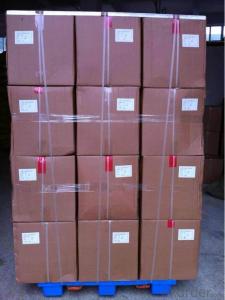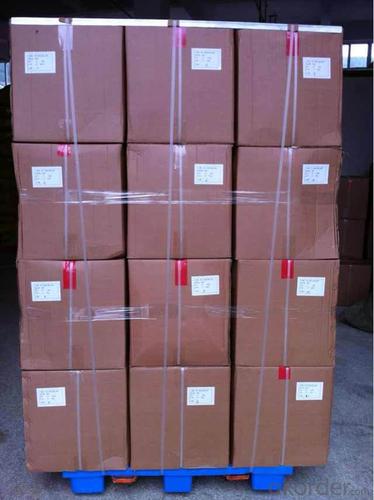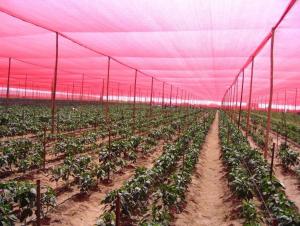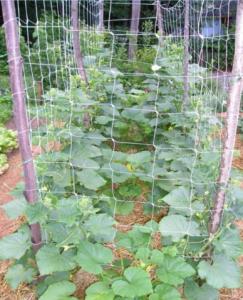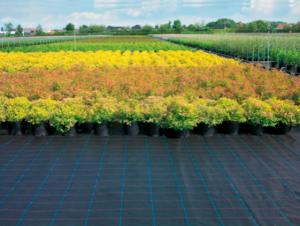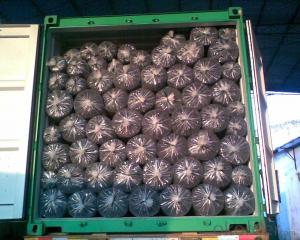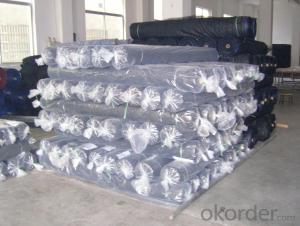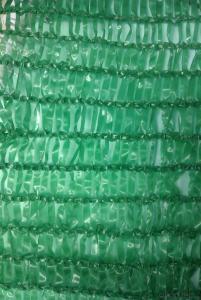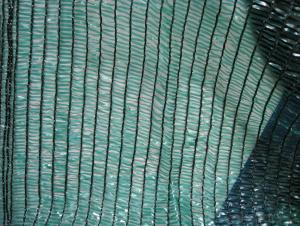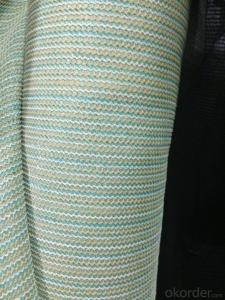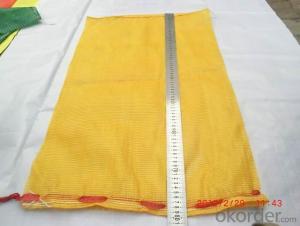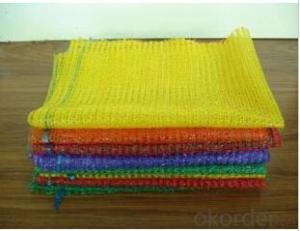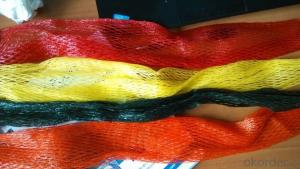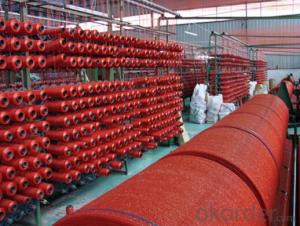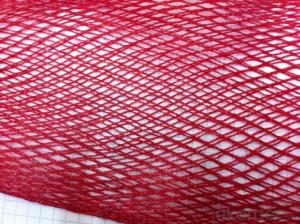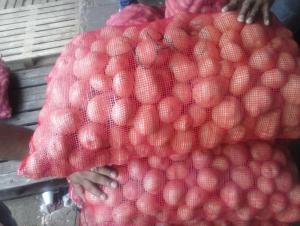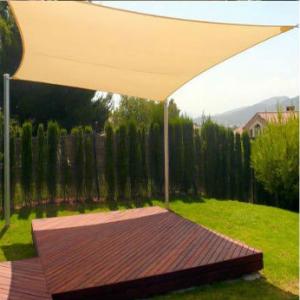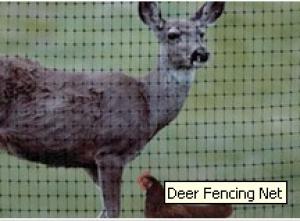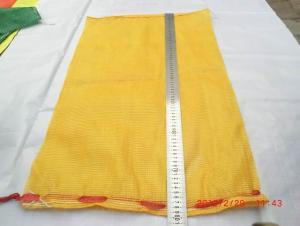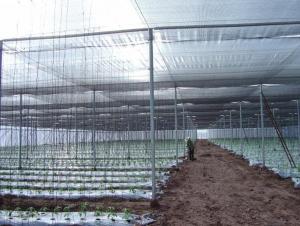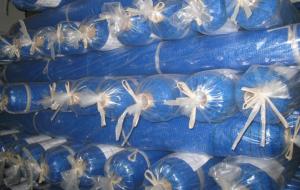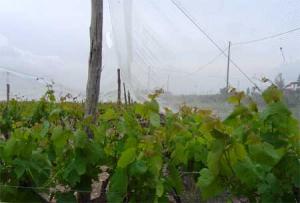Plastic Nets Mesh Bag for Vegetable Weave Tape Filament
- Loading Port:
- Shanghai
- Payment Terms:
- TT OR LC
- Min Order Qty:
- -
- Supply Capability:
- 200T m.t/month
OKorder Service Pledge
Quality Product, Order Online Tracking, Timely Delivery
OKorder Financial Service
Credit Rating, Credit Services, Credit Purchasing
You Might Also Like
Product Description
We can produce a variety of mesh bag with high quality, including mesh bag (PP), raschel mesh bag (PE) and tubular mesh bag (PP).
Item: Leno mesh bag with label
Material: PP
Size: As customers' requirements
Color: Red, orange, yellow, green, purple, transparent etc.
They are widely used for packing vegetables, fruits, firewood and seafood. Such as onions, potato, garlic, orange, cabbage, carrot, apple, pear and so on.
| Material | PP (leno mesh bag, tubular mesh bag), PE (raschel mesh bag) |
| Width | As client' s requests |
| Length | Up to 85 cm |
| Weight | 30 GSM – 50 GSM |
| Color | red, orange, yellow, green, purple, transparent etc. |
| Sewing | L- sewing ( overlock sewing or fold sewing) |
| Delivery time | 15-30 days for a 40'FCL |
| Feature | With or without drawstring, with or without UV protection, with or without lable |
- Q: Are plastic nets suitable for use in food processing?
- No, plastic nets are not suitable for use in food processing as they can potentially contaminate the food and pose a health risk. It is recommended to use food-grade materials specifically designed for food processing to ensure safety and hygiene.
- Q: How do plastic nets provide support for climbing plants?
- Plastic nets provide support for climbing plants by acting as a trellis system. The netting structure allows the plants to intertwine and grip onto it as they grow, providing stability and preventing them from falling over. This support helps climbing plants to grow vertically and spread out, maximizing their exposure to sunlight and air circulation.
- Q: How do plastic nets perform in earthquake-prone areas?
- Plastic nets are not designed to withstand earthquakes and therefore do not perform well in earthquake-prone areas. The structural integrity of plastic nets is not strong enough to withstand the force and motion generated during an earthquake, making them ineffective for use in such areas.
- Q: Can plastic nets be used for poultry farming?
- Yes, plastic nets can be used for poultry farming. They can be employed as protective barriers to prevent predators from entering the poultry area and also as fencing to keep the poultry confined in specific areas. Plastic nets are lightweight, durable, and cost-effective, making them a suitable option for use in poultry farming operations.
- Q: Are plastic nets suitable for use in swimming pool coverings?
- Plastic nets are typically not suitable for use in swimming pool coverings as they lack the necessary durability and strength to effectively cover and protect the pool.
- Q: Can plastic nets be used for creating drying racks?
- Yes, plastic nets can be used for creating drying racks. They are lightweight, durable, and have enough space between the netting to allow air circulation, which is essential for drying items effectively.
- Q: Can plastic nets be used for erosion control?
- Yes, plastic nets can be used for erosion control. They are often used in various erosion control methods, such as slope stabilization and sediment control. Plastic nets help to reinforce soil, prevent surface runoff, and reduce erosion by holding the soil in place.
- Q: Are plastic nets suitable for rockfall protection?
- Yes, plastic nets are suitable for rockfall protection. These nets are lightweight, durable, and flexible, making them an effective solution for preventing rocks from falling onto roads, buildings, or other vulnerable areas. They are also cost-effective and easy to install, making them a popular choice for rockfall mitigation projects.
- Q: Are plastic nets used in the construction of greenhouses?
- Yes, plastic nets are commonly used in the construction of greenhouses. They are used to provide shade, support climbing plants, and protect crops from pests and harsh weather conditions.
- Q: How are plastic nets different from woven nets?
- Plastic nets are made from synthetic materials such as nylon or polypropylene, while woven nets are typically made from natural fibers such as cotton or hemp. Plastic nets are more durable, resistant to rot and moisture, and can withstand harsh environmental conditions. They are also generally lighter in weight and have higher tensile strength compared to woven nets. Additionally, plastic nets can be easily molded or extruded into various shapes and sizes, whereas woven nets are limited by the weaving process.
Send your message to us
Plastic Nets Mesh Bag for Vegetable Weave Tape Filament
- Loading Port:
- Shanghai
- Payment Terms:
- TT OR LC
- Min Order Qty:
- -
- Supply Capability:
- 200T m.t/month
OKorder Service Pledge
Quality Product, Order Online Tracking, Timely Delivery
OKorder Financial Service
Credit Rating, Credit Services, Credit Purchasing
Similar products
Hot products
Hot Searches
Related keywords
